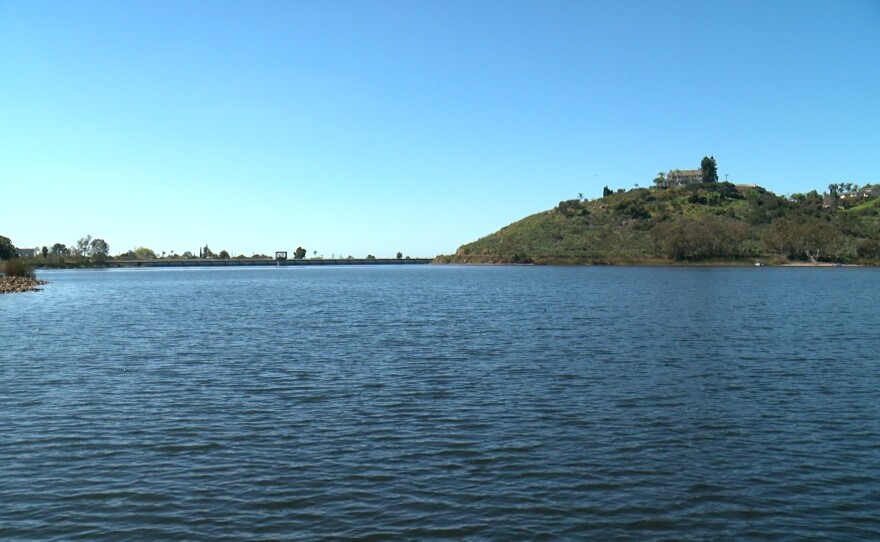From top to bottom, from the federal government to the city of San Diego, programs that feed people, help them stay healthy, find jobs and enrich them are on the chopping block. The public is taking an unprecedented hit.
KPBS spoke with Noah Yee Yick of the Center on Policy Initiatives about where we might be headed.
The House just passed legislation that includes $1 trillion in cuts to Medicaid and SNAP. Fourteen million people could lose health coverage, 3 million in food stamps. At the same time, the plan headed to the Senate would make permanent trillions of dollars in tax cuts for the wealthy. It's called the largest wealth transfer from the poor to the rich in this country's history. How damaging is this level of inequality?
Yee Yick: What's really important to remember is that budgets are moral documents. They are a statement of our values. With these kinds of budgets, our nation is making it clear — the federal administration is making it clear — what they value, who they value, what their priorities are, and who they're willing to leave behind. The largest transfer of wealth from the poor to the rich is exactly a reflection of this administration's priorities and where this nation is headed.
It is cutting away from programs and services like food assistance, SNAP, health insurance, education that are the foundation of a healthy, thriving nation, a healthy, thriving city. And instead putting the priority on profits, on the wealthy and well-connected over working-class communities, over low-income communities and communities of color.
Meanwhile, California is grappling with a multi-billion dollar deficit, and may cut long-term care for the poor and elderly, freeze state workers’ salaries. The city of San Diego is planning to cut library hours, park hours and public bathroom services. Lake Murray might only be open on the weekends. Talk to me about what these cuts — federal, state, local, all at the same time — do to a society’s psyche.
Yee Yick: These budgets of austerity, of chronic disinvestment in people — right? — in these public infrastructures that people rely on to not just thrive, to merely survive, are going to hollow out our city, our state, our nation’s ability to properly respond to crises, and are going to leave people further behind.
When we're cutting those things, we're not just cutting hours and closing restrooms and reducing programming — we're losing trust, we are losing community, we're losing care, we're losing belonging, and the sense that what we're building truly belongs to all of us.
I want to pry into that a little bit deeper. Libraries, parks, Lake Murray with its natural glory — what role do these places play in binding communities? And when you reduce access, how do residents maintain their sense of community?
Yee Yick: It can be really difficult. These cuts will disproportionately impact youth, our seniors, working-class communities, low-income communities, communities of color who have fewer alternatives to these spaces — these options that bring people together.
Libraries, parks and recs, places like Lake Murray, are some of the only — the very few — accessible public spaces that bring people that sense of belonging, that bring people joy, that bring people together and really make it feel like this city is a place that everyone can truly call home.
So when we cut away from that, we're also telling these communities, 'hey, you don’t matter as much.'
So what options do they have to still meet someplace and maintain those community ties?
Yee Yick: Joy is going to be disappearing, it’s going to be harder to access that, and that’s going to have a tremendous impact not just now, but in future generations to come. It’ll have a ripple effect on communities for the future as well.
Let’s probe that point a little bit deeper. You’re a policy advocate committed to what you describe as creating a world where joy is accessible to all. How do you accomplish that in a time of unparalleled cuts?
Yee Yick: We need to put pressure on our leaders to put people first. When I think of what it means to live with joy: folks are housed. I see kids running around, playing, enjoying the diversity of San Diego. People have the ability to swim in a clean ocean — to drink a clean glass of water. They have enough food on the table. They can breathe clean air. They have health care and education. People have good jobs that pay them well and treat them with dignity.
Those are the foundations where joy can be found, but also that facilitate that. And so when we see budgets that disinvest in people — that disinvest in this infrastructure — it is also taking away the ability that people have to find joy in life.







